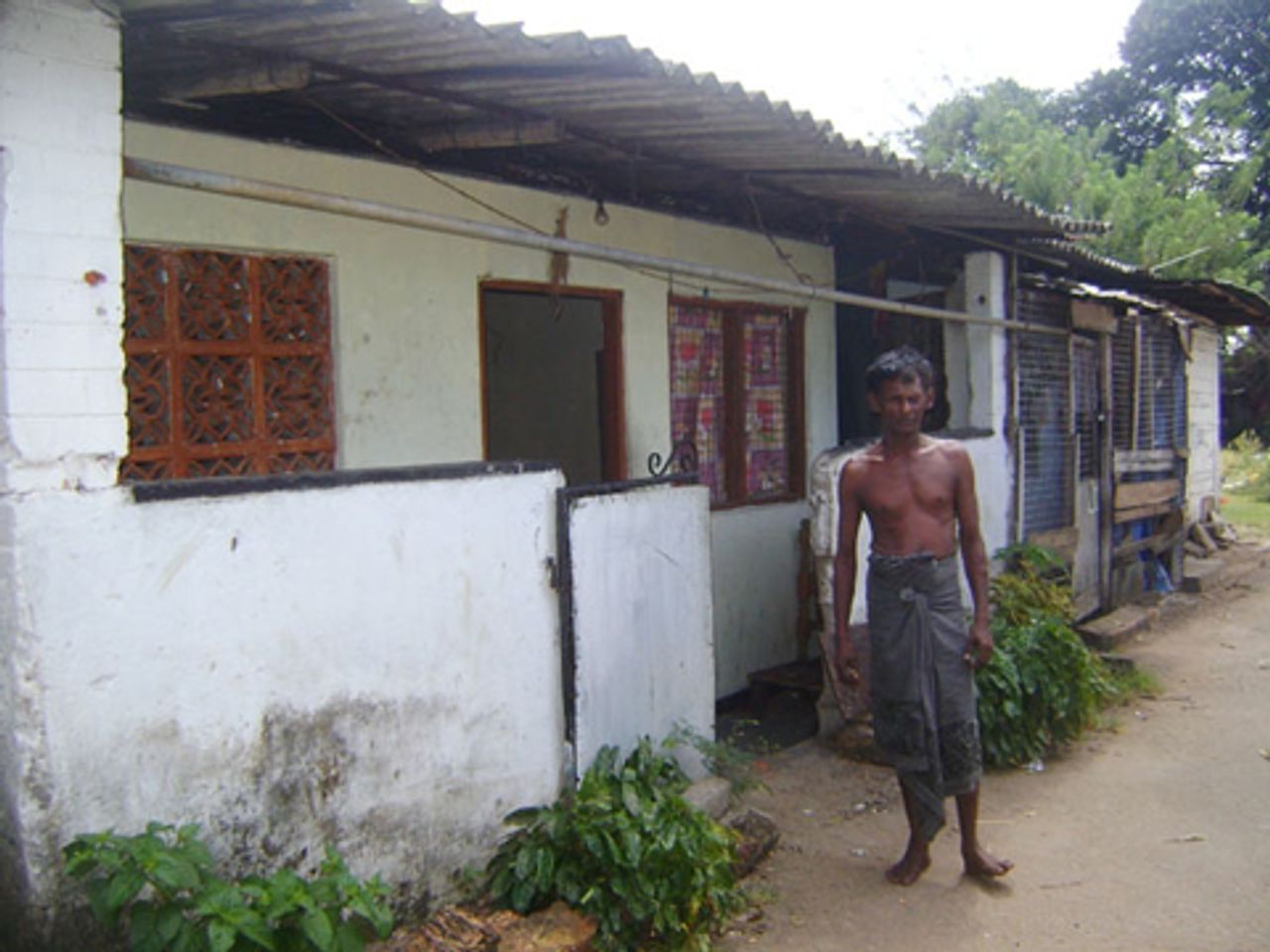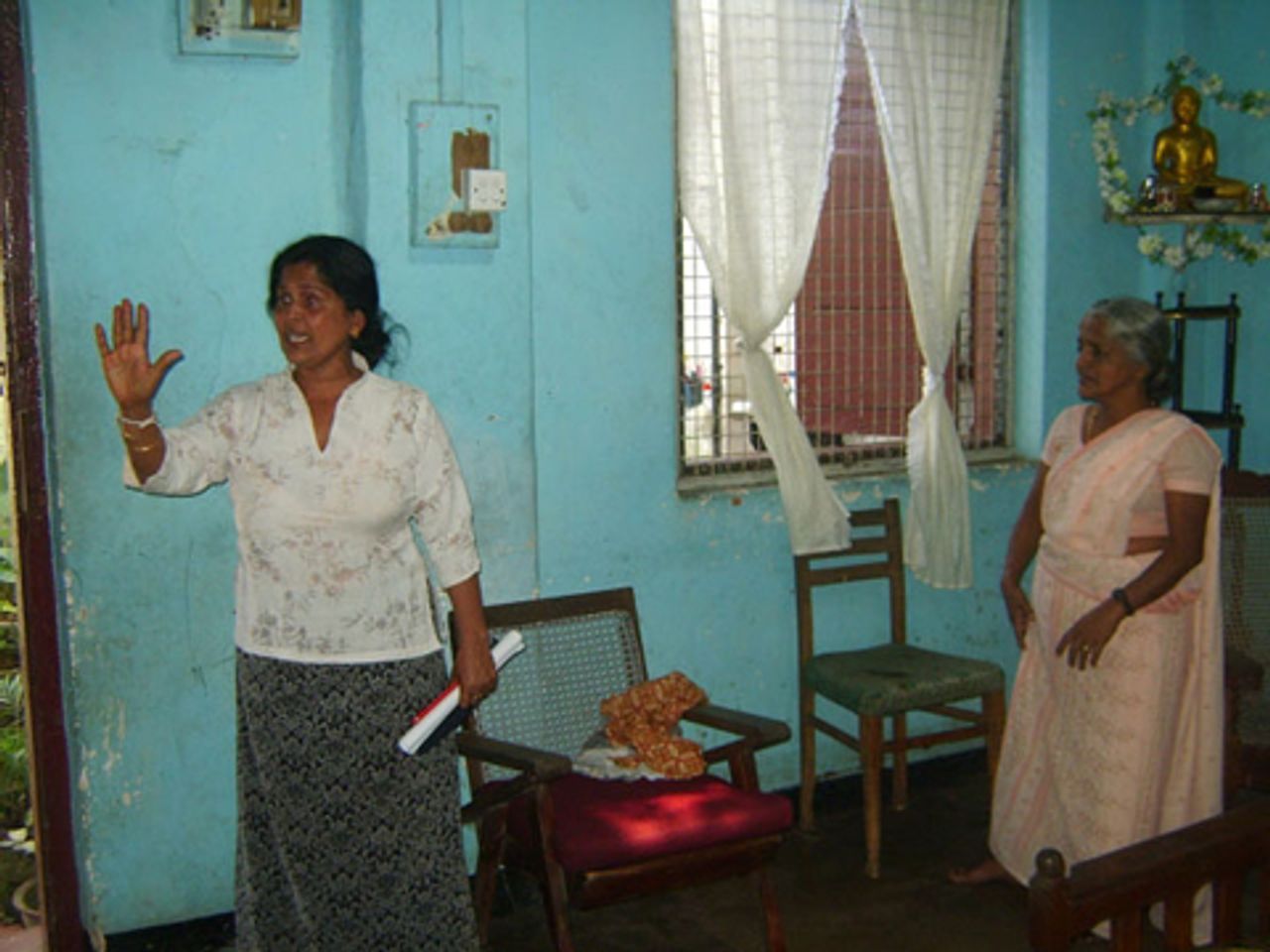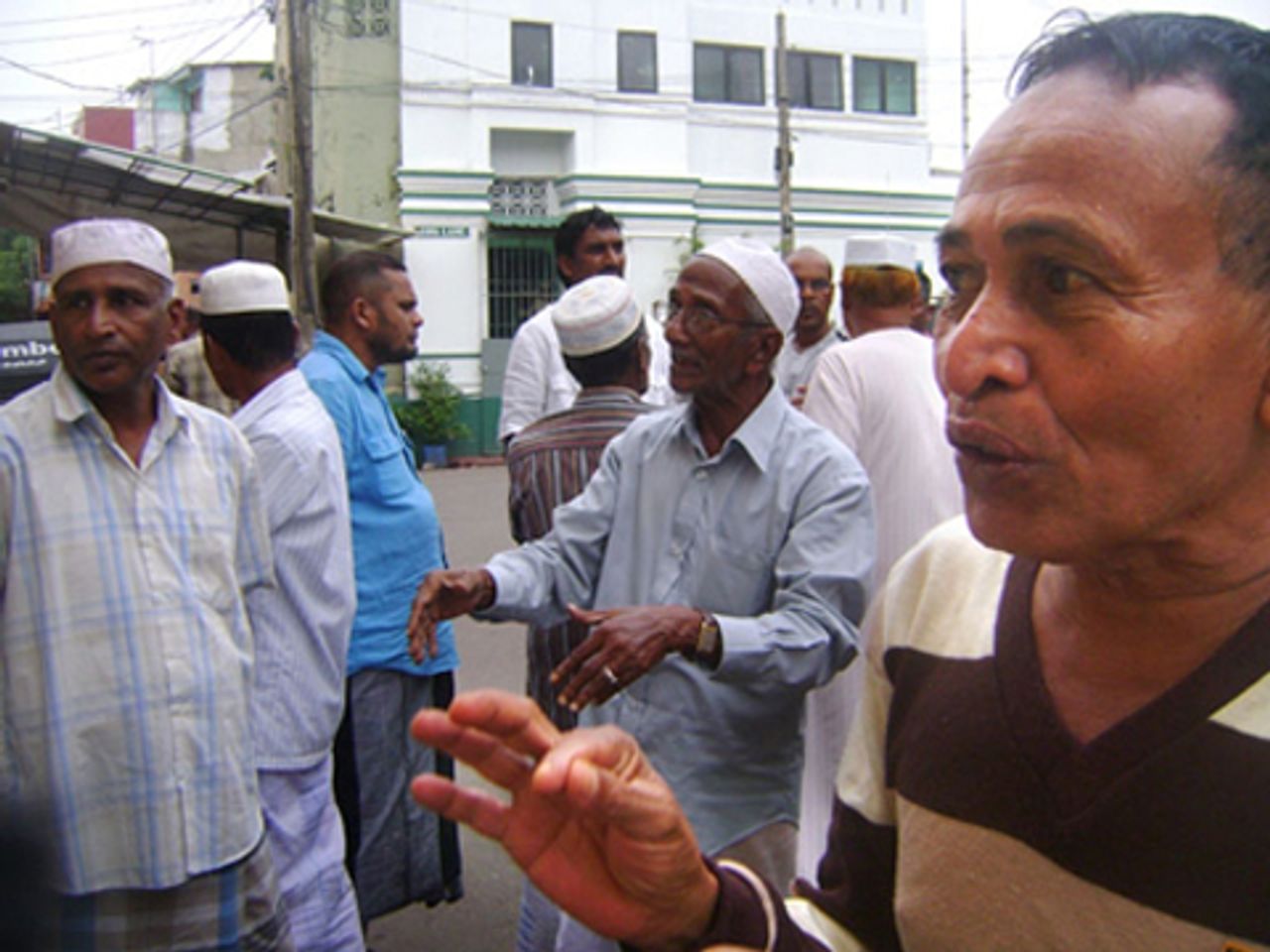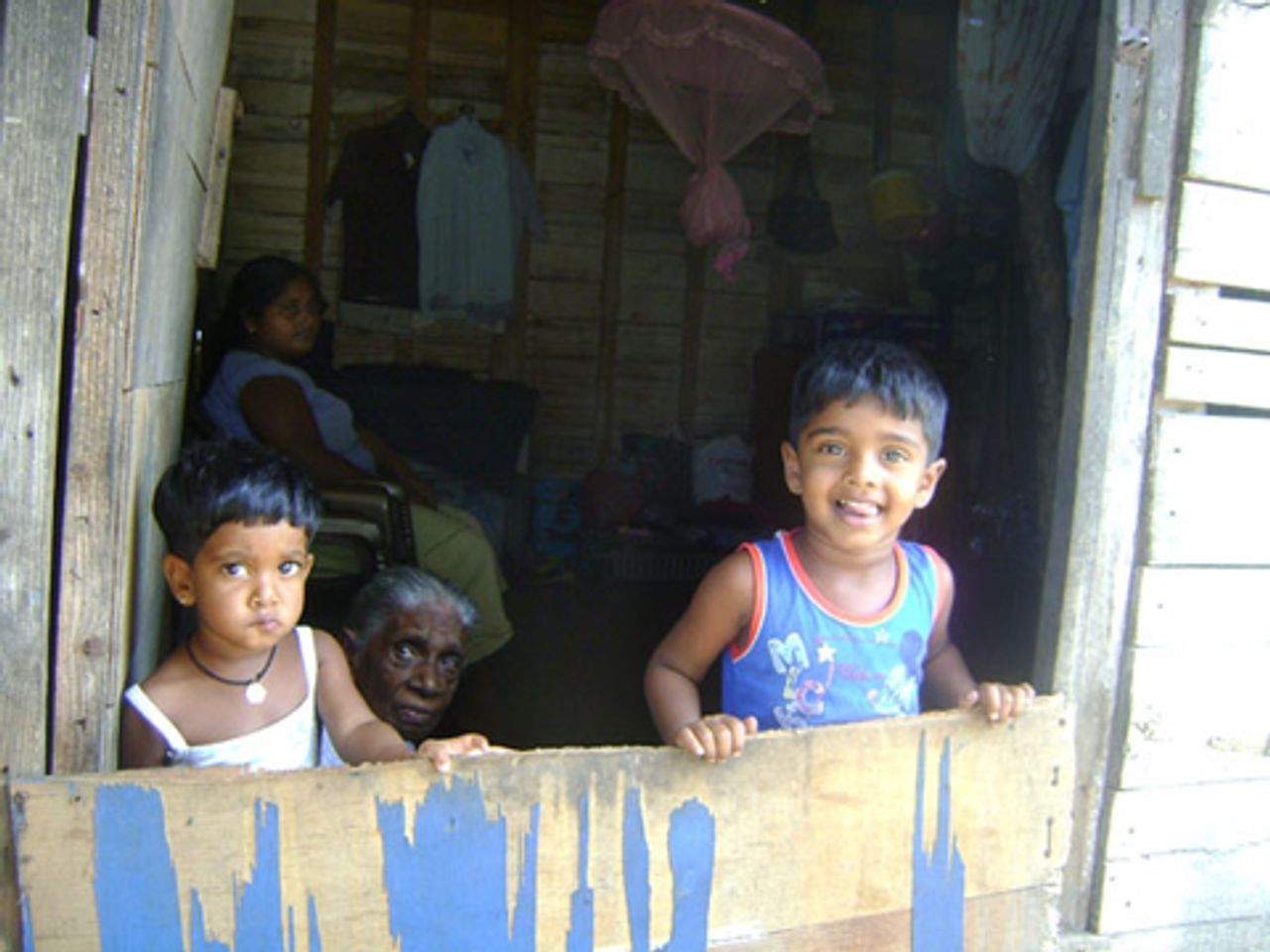Since the beginning of the year, the Sri Lankan government has sped up the implementation of its plans to evict 66,000 families from their homes and shanties in Colombo to clear land for developers and foreign investors.
The military is intimately involved in the process, with soldiers mobilised to suppress opposition to the evictions. Last year, Presid ent Mahinda Rajapakse’s government placed the Urban Development Authority (UDA) and Land Reclamation and Development Board (LRDB) under the control of the Defence Ministry.
* On January 5, residents of Slave Island in central Colombo were told by UDA officials to prepare to vacate their houses. The land is predominantly occupied by small businessmen, many of whom have valid deeds. Some of the homes have three or four rooms and have electricity and running water. However, UDA chairman Janaka Kurukulasuriya told the Sunday Times that even those families with deeds to their houses would be evicted.
* On January 20, UDA officials went to Wanathamulla, a Colombo suburb, along with hundreds of police and heavily-armed Special Task Force personnel, to bulldoze about 60 houses. Residents confronted officials and opposed the demolition. One person attempted to set fire to himself after pouring kerosene over his body but other protesters stopped him. The police were forced to back off, at least temporarily.
* On January 24, soldiers were deployed to demolish 13 shops in the Fort area of central Colombo. These shops are up to a century old and residents have legal documents to demonstrate their ownership. “The army is running the scene. An officer said they have orders from higher ups to demolish buildings,” one small shop owner angrily told WSWS reporters.
Most of those facing evictions are poor. They have no proper jobs or decent housing. In many cases they and their families have been living in shanty areas in central Colombo for decades, eking out a living as street vendors, scrap collectors and casual labourers. Now the government is seeking to clear large areas of the capital in order to boost tourism and transform the central areas into a business hub for the Asian region.
 B.A. Jayantha outside his Wanathamulla home
B.A. Jayantha outside his Wanathamulla homeWanathamulla resident, B.A. Jayantha, a retired worker who tried to immolate himself, told the WSWS: “The UDA officials came on January 19 and told us to vacate the houses the following day. Most of the families have lived here more than 50 years and even have legal deeds. Can people vacate their home within 24 hours without a proper alternative?”
 S.A. Swarna (left)
S.A. Swarna (left)S.A. Swarna said her parents had settled in the area in 1943. “We are not rich people and are living on the income we get day by day. My husband is a driver and I run a small garment shop. If we are compelled to vacate this place, we will be ruined.”
The local parliamentarian, Thilanga Sumathipala, a member of Rajapakse’s ruling coalition, attempted to pacify Wanathamulla residents by promising to intervene to delay the evictions for a month and to seek rental assistance until new homes were provided. Local people put little faith in these empty pledges.
Previously, there were around 400 families living in the area, but most were evicted in 2001 and 2007 and have been housed in flats at Sahasarapura and Singhepura. Sixty families refused to move, however. Many simply could not afford to pay for the advance fees and electricity connection.
The authorities have told these residents to move into temporary small wooden huts at Thotalanga and Weligodawatta in the Colombo suburbs, but these huts have no basic facilities, including water and sanitary facilities.
In another area, hundreds of families from Malay Street, Justice Akbar Street, Masjidul Jamiah Street and Java Lane on Slave Island have been ordered to prepare for eviction. Most are Muslims and Tamils who were summoned by UDA officials on January 5 and issued with the warning.
UDA officers told the residents that they would be given 8,000 rupees a month for rent for the next 18 months. They were also promised new houses, but have refused to move.
 M.H.M. Saalem (far right)
M.H.M. Saalem (far right)M.H.M. Saleem, 61, told the WSWS: “I asked them whether the government was going to give us a written guarantee to provide houses? But there was no answer. Everyone here is ready to defend their homes.”
Saleem added: “Some people who support the government say the government agreed to provide houses. But where are the houses built? The government is going to give the land to foreign businessmen.” He recalled the forcible eviction of 45 families from Mew Street in Slave Island last May, when 2,000 police and soldiers were deployed. “Many of those evicted from Slave Island earlier are still living in streets,” he explained.
UDA Deputy Director General Jayatunge admitted that the authority had no plans to build houses for the 66,000 families being evicted. He told the WSWS: “We have just started building 1,600 houses in Salamulla and another 500 in Dematagoda.” He said these houses would be completed in two years and another 25,000 houses would be built in three years. He did not explain where the necessary funding would come from.
While stepping up the evictions, the government is expediting agreements with foreign and local investors. On January 12, the cabinet approved two projects, each worth $US500 million—a shopping mall to be constructed by the China National Aero Technology Corporation and a hotel to be operated by the Shangri La Hotel group.
 Small children in their home
Small children in their homeAccording to the Sunday Times, a Sri Lankan blue chip company is to purchase five hectares of land where it plans to build hotels and trade complexes. The newspaper explained: “It is being carried out under the government’s ambitious plan to transform Colombo into a world class city, globally recognised and a thriving, dynamic and attractive regional hub.”
Overall, the government is seeking to clear about 390 hectares of land, mainly occupied by shanty dwellers. In order to stifle political opposition, it is not only deploying the military but has replaced the Colombo Municipal Council (CMC) with an appointed administrator. The government has also excluded Colombo from upcoming municipal elections, on the flimsy pretext that the capital is a venue for World Cup cricket matches.
The major opposition parties—the United National Party (UNP) and Janatha Vimukthi Peramuna (JVP)—nominally oppose the evictions, but promote the illusion that the government can be pressured to halt its plans. The UNP, which in government carried out previous evictions, and the JVP are both based on the same pro-market policies as the government.
The eviction plans cannot be defeated by putting pressure on the government, which is implementing policies dictated by international finance capital and the International Monetary Fund. The struggle to defend the basic right to proper accommodation is bound up with that of the working class as a whole to defend its living standards and basic democratic rights by establishing a workers’ and farmers’ government.
The Socialist Equality Party (SEP) insists that these shanty dwellers must be provided with decent housing and proper employment. Only by reorganising the economy on a socialist basis to meet the needs of majority of working people can such a program be implemented.
The SEP urges working people to come to the assistance of the urban poor by opposing the government’s evictions. The party has initiated an Action Committee to Defend the Right to Housing and calls on shanty dwellers, workers and youth to join and build it.
